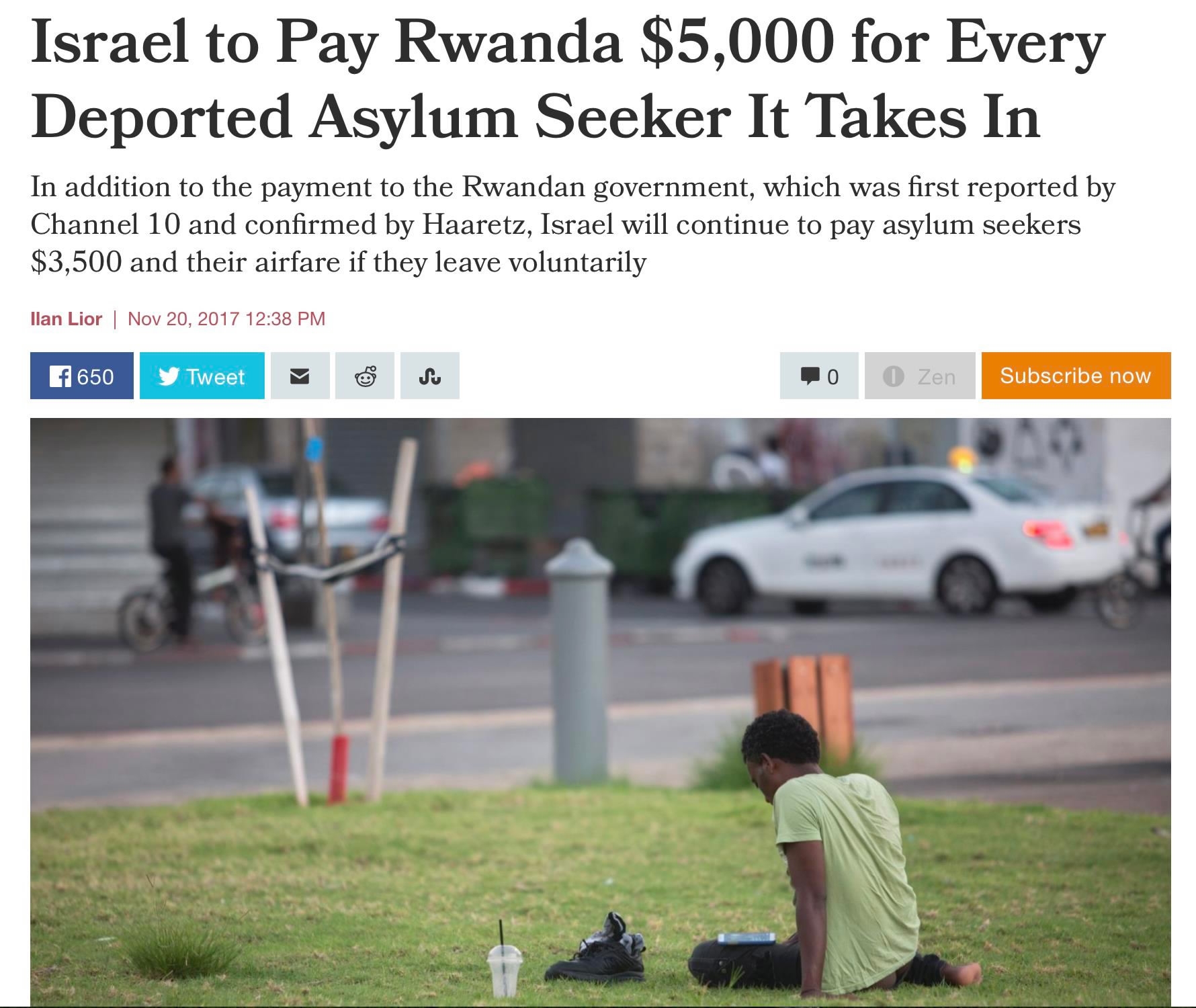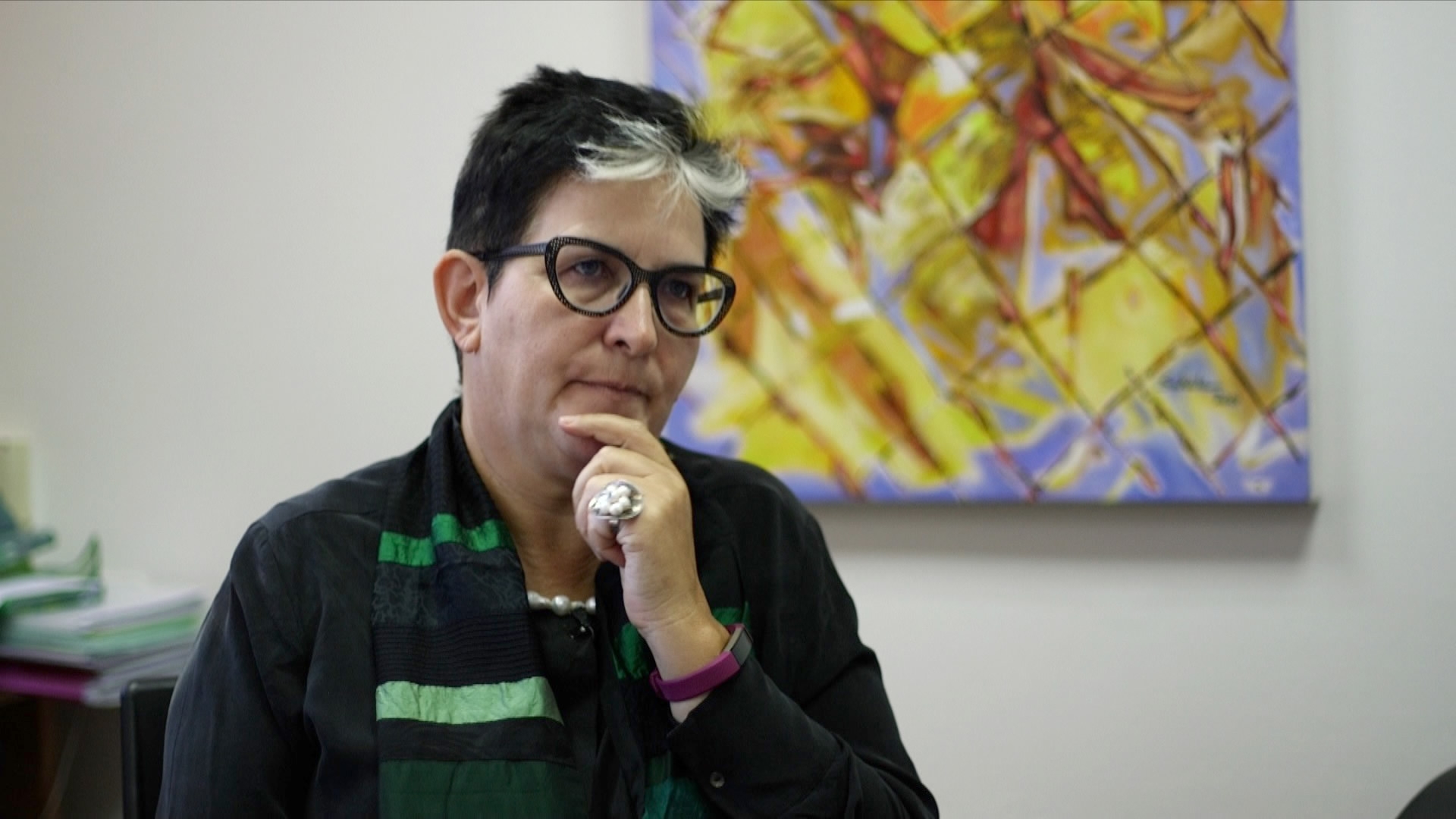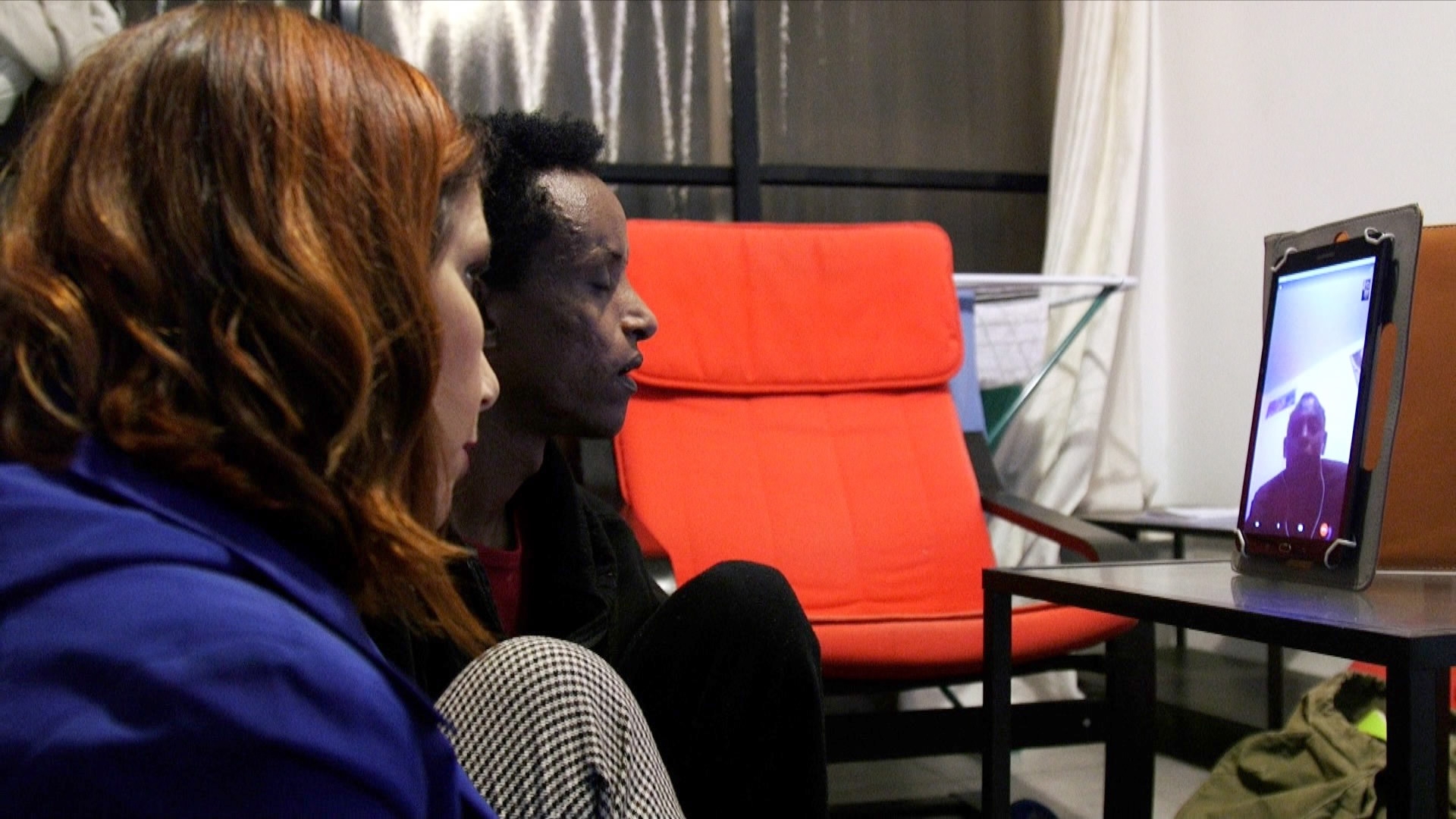
Politics
18:53, 13-Dec-2017
'Modern-day slave trade': Israel to deport African asylum seekers
By Stephanie Freid

Modern-day slave trade?
Israel’s parliament passed a law allowing mass deportation of up to 38,000 African asylum seekers living in the country.
The Israeli government says the mostly Sudanese and Eritrean nationals are job seeking migrants who illegally infiltrated Israel during a wave of cross-border movement between 2006 and 2009.
Human rights organizations recognize that the majority of Africans who came to Israel during that wave were fleeing war and forced conscription at home. If they are sent back to their countries of origin, they will face jail time and death.
What's the plan?

Headline of a story about the Rwanda-Israel deal./ CGTN Photo
Headline of a story about the Rwanda-Israel deal./ CGTN Photo
Eritrean and Sudanese nationals will be given a choice: Accept "relocation" to Rwanda or Uganda or go to jail, according to what has been reported. The Israeli government struck a deal with Rwanda, under which the country gets 5,000 US dollars for every asylum seeker it takes in.
Critics say the deal amounts to modern-day slave trade.
The United Nations refugee agency UNHCR representative in Israel, Walpurga Englbrecht says the policy is less about choice - more akin to forced relocation.
In a statement addressing the impending deportation initiative, UNHCR international expressed concern over the mass deportation plan.
"If you just have these two choices (jail or relocation), in the end, it is a forced relocation policy," said Englbrecht.
The refugee agency would like to see Israel’s government recognize more Africans who fled countries of origin as refugees. Of the tens of thousands in Israel, only 12 have received official asylum or refugee status.

The United Nation Refugee Agency UNHCR Israel Representative Walpurga Englbrecht./ CGTN Photo
The United Nation Refugee Agency UNHCR Israel Representative Walpurga Englbrecht./ CGTN Photo
Relocation: 'All lies'
Eritreans who opted for relocation to Rwanda in past years have reported abuse and a dead-end scenario: no jobs, no backing, no aid, no legal status.
Hagos fled his home country Eritrea to avoid forced conscription, leaving behind his wife and infant daughter. He lived in Israel for six years and then chose "the Rwanda Option" to avoid prison.
"It was all lies. Everything they told us was" said Hagos,who now lives in the Netherlands. He and fellow Eritreans were promised a "fresh start": jobs and legal recognition in Rwanda.

Hagos in The Netherlands./ CGTN Photo
Hagos in The Netherlands./ CGTN Photo
Upon arrival in Rwanda, they were physically abused, confined to a cramped "hotel" and left to fend for themselves.
Hagos decided to leave and headed for Uganda.
From there, he went to Juba, Khartoum and Libya, crossed the Mediterranean Sea on a boat to Italy and eventually landed in The Netherlands where he now lives as a state-recognized refugee.
The story of Hagos is not uncommon - Eritreans who have opted for forced relocation report arriving to Rwanda, being stripped of paperwork and not finding a body or entity to assist with work or accommodation related issues.

SITEMAP
Copyright © 2018 CGTN. Beijing ICP prepared NO.16065310-3
Copyright © 2018 CGTN. Beijing ICP prepared NO.16065310-3